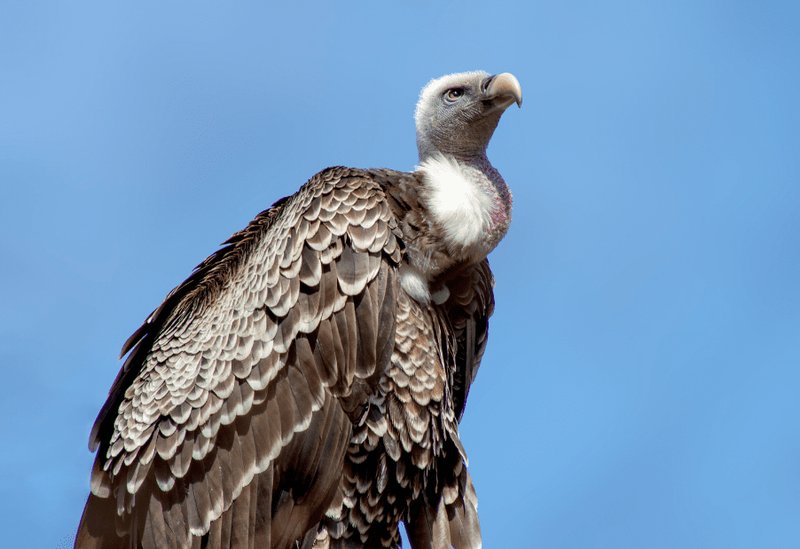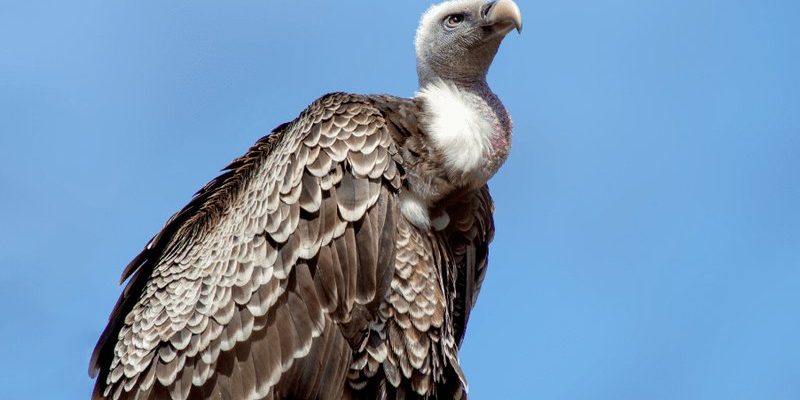
Imagine the world as a giant buffet, where not all the food is fresh. Vultures embrace this idea, turning to carrion—dead animals that most creatures would avoid like the plague. Their ability to adapt not only to what they eat but also to where they live is key to their success in the animal kingdom. Let’s dive into the specific ways vultures have adapted to their environment and how they manage to thrive where others might struggle.
Physical Adaptations: Built for the Job
Vultures have some truly unique physical features that make them well-suited for their scavenging lifestyle. First off, take a look at their sharp beaks. These are not just any beaks; they’re perfectly designed for tearing through tough hides and sinew. Unlike most birds that have delicate beaks for picking seeds or insects, vultures need something sturdier to get to the nutrient-rich flesh beneath the surface. This adaptation allows them to eat food that most other scavengers can’t access.
Another standout feature is their powerful eyesight. Vultures are known for their incredible vision, which lets them spot carrion from miles away. While we might squint to see something far off, vultures can glide through the air, scanning the ground below with remarkable precision. This ability to see far distances is crucial for locating food in the vast landscapes they often inhabit.
Lastly, let’s not forget about their bare heads. At first glance, this might seem a bit odd, but there’s method behind the madness. A featherless head helps vultures stay clean while feeding. When they dig into rotting carcasses, their heads don’t get matted with blood or bacteria, reducing the risk of infection. It’s like having a built-in sanitary feature that makes their scavenging more efficient.
Behavioral Adaptations: Mastering the Art of Scavenging
Vultures are not just physically equipped for their role; they also have smart behaviors that help them survive. For example, they often soar at high altitudes, taking advantage of thermals—rising columns of warm air that allow them to glide effortlessly without flapping their wings. This energy-saving technique means they can cover large distances while searching for food.
Another interesting behavior is their social structure. Vultures often feed in groups, which not only allows them to locate food more effectively but also provides safety in numbers. By working together, they can chase off competitors and share the bounty. You might even see them perform a sort of dance or ritual before diving into a meal, which strengthens their social bonds and helps establish pecking order.
Additionally, vultures are also known for their strategic feeding habits. They have a unique way of knowing when a dead animal is fresh enough to eat. They can often smell rotting flesh from several miles away, which helps them identify potential meals before other scavengers can swoop in. This olfactory prowess is a game-changer, ensuring they can find food that’s nutritious and safe to consume.
Ecological Roles: Nature’s Clean-Up Crew
Now, you might be wondering why vultures are essential to our ecosystems. Their role goes far beyond just being scavengers. Vultures are nature’s clean-up crew, helping to control disease by consuming dead animals. When carcasses are left to decay, they can become breeding grounds for bacteria and pests. Vultures swoop in, dealing with these potential health hazards, which is a crucial service to the environment.
In many cultures, vultures are even seen as symbols of renewal and purification. By breaking down and consuming dead matter, they play a vital part in nutrient cycling. The nutrients from the decomposed animals eventually return to the soil, enriching it and supporting new plant growth. This means vultures contribute to the overall health of their habitats.
Interestingly, when vulture populations dwindle, we see a rise in carcass-related diseases. Animals that could have been cleaned up quickly become public health concerns, showing just how essential vultures are to maintaining ecological balance.
Adaptations to Climate: Surviving Diverse Environments
Vultures are found all over the world, from deserts to grasslands and even in urban areas. Their adaptability to various climates is another testament to their survival skills. For instance, in hot, arid regions, vultures have developed the ability to withstand high temperatures without overheating. They often stretch out their wings and even urinate on themselves to cool down, a technique that might seem odd but is effective.
In colder climates, vultures can adapt by migrating to warmer areas during harsh winters. This seasonal movement allows them to follow food sources and ensure their survival. It’s fascinating to see how these majestic birds have evolved not just to survive but to thrive in a multitude of environments.
When it comes to nesting, vultures are also quite strategic. They typically build their nests in high, safe places like cliffs or tall trees. This keeps their young safe from ground predators while giving them a strategic vantage point for spotting food. By carefully choosing their nesting sites, vultures continue to adapt to their surroundings, ensuring their species’ longevity.
Vultures are truly remarkable creatures, showcasing an array of adaptations that allow them to thrive in environments that can be unforgiving. From their specialized beaks and sharp eyesight to their vital ecological roles, vultures remind us of the beauty of nature’s design. They might not be the first animals that come to mind when we think of biodiversity, but they play a crucial part in maintaining the balance of our ecosystems.
So, the next time you see a vulture soaring high in the sky or perched lazily on a branch, remember: these birds are not just scavengers. They are the ultimate survivors, adapting to their environment in ways that many of us might not even imagine. And honestly, that’s something worth appreciating!

